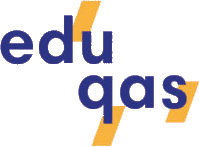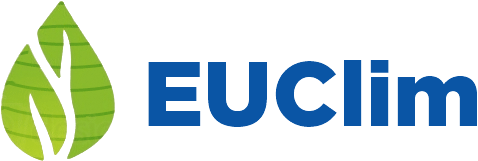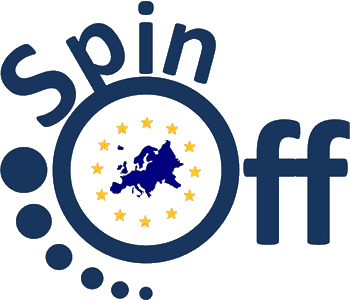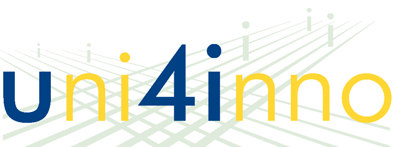International projects
National Metallurgical Academy of Ukraine pays significant efforts in order to bring the study programmes, educational technologies, research and scientific activities in accordance to the European principles and standards of education. NMAU is an active participant of different European projects such as Erasmus+, TEMPUS, DAAD, Visby etc.
| Boosting the role of HEIs in the industrial transformation towards the Industry 4.0 paradigm in Georgia and Ukraine 609939-EPP-1-2019-1-BE-EPPKA2-CBHE-JP |
||
|
||
Manufacturing Factory Learning Lab
|
||
|
Project objectives: Wider objective is to reinforce the role of HEIs in assisting industrial trans-formation in Georgia and Ukraine under Industry 4.0 paradigm. Target groups: universities, industry. Specific project objectives: Project activities: Expected results:
Consortium of the project: European Union: Katholieke Universiteit Leuven (Belgium), Instituto Politécnico do Porto (Portugal), KTH Royal Institute of Technology (Sweden), Volvo Cars Gent (Belgium). Ukraine: National Metallurgical Academy of Ukraine, Donetsk National Technical University, Lutsk National Technical University, Odessa I.I.Mechnikov National University, Daughter Enterprise “Festo”. Georgia: Akaki Tsereteli State University, Batumi Shota Rustavelli State University, Business and Technology University, Georgia's Innovation and Technology Agency.
Project coordinator at USUST (until 01.11.2021 NMAU): since 01.01.2023 associate professor of the department of electrometallurgy Оleksandr Zhadanos, tel./fax +38 056 247 44 33, o.v.zhadanos@ust.edu.ua Implementation period of the project: 15/01/2020-14/01/2024 |
| Implementation of Education Quality Assurance system via cooperation of University-Business-Government in HEIs 586109-EPP-1-2017-1-RO-EPPKA2-CBHE-SP |
||
|
||
| www.web.elth.ucv.ro/eduqas/ | ||
|
Project objectives: Wider objective is to improve education quality assurance systems through development of efficient internal quality standards leading to better employability of students in Partner Countries Universities. The internal QA system will be based on analysis of needs and capacities in Kazakh and Ukrainian HEIs, experiences and best practices from the successful QA action line of the Bologna Process. Target groups: students, administrative and academic staff, QA specialists, business representatives, public authorities, associated partners. Specific project objectives: Project activities: Expected results:
Consortium of the project: European Union: University of Craiova (Romania), University of Liege (Belgium), KTH Royal Institute of Technology (Sweden), Plovdiv University “Paisii Hilendarski” (Bulgaria), University of Latvia (Latvia), University of Lorraine (France), High Council for Evaluation of Research and Higher Education (Hcéres) (France). Ukraine: National Metallurgical Academy of Ukraine, Simon Kuznets Kharkiv National University of Economics, Lviv Polytechnic National University", Donetsk State University of Management, Ministry of Education and Science of Ukraine, Institute of Higher Education of NAES of Ukraine, National Agency for Quality Assurance in Higher Education of Ukraine. Kazakhstan: Kazakh Ablai Khan University of International Relations and World Languages, Kazakh University of Economics, Finance and International Trade, Ministry of Education and Science of Kazakhstan.
Project coordinator at NMAU: Implementation period of the project: 15/10/2017-14/10/2020 |
| European Union Leadership in Climate Change Mitigation 564689-EPP-1-2015-1-UAEPPJMO-MODULE |
||
|
||
| www.euclim.com | ||
|
Wider Objective: to develop knowledge base and human resource needed to harmonise socio-economic agenda in Ukraine with the EU climate change mitigation policies |
Joint European TEMPUS projects
| Higher engineering training for environmentally sustainable industrial development 543966-TEMPUS-1-2013-1-BE-TEMPUS-JPCR |
||
|
||
| www.hetes.com.ua | ||
|
The main objective of the project is to improve relevance of higher engineering education in Ukraine towards the challenges of current and future industrial transformation aimed at sustainable development and climate stabilization. Objectives of the Project: 1. To develop “Environmentally Sustainable Industrial Development” training course for MSc, PhD Programmes and LLL audience covering industrial sectors of Mining, Metallurgy, Energy, Machine-building and Mechatronics. 2. To bring engineering curriculum where interdisciplinary environmental aspects are adequately focused. 3. To create Interfaculty Sustainable Development Centres in 5 Ukrainian universities. 4. To establish a platform for networking between academia, research, industry and authorities towards the needs of sustainable society. Consortium of the project: European Union: Katholieke Universiteit Leuven (Belgium), Buckinghamshire New University (UK), Universidad de Granada (Spain), Royal Institute of Technology (Sweden), Volvo Cars Gent (Belgium). Ukraine: National Metallurgical Academy of Ukraine, Donetsk National Technical University, Ivano-Frankivsk National Technical University of Oil and Gas, Sevastopol National Technical University, Kryvyi Rih National University, Ministry of Education and Science of Ukraine. Ukrainian Research & Technology Center of Metallurgy Industry. Implementation period of the project: 01 December 2013 – 30 November 2016 This project has been funded with support from the European Commission. This publication reflects the views only of the author, and the Commission cannot be held responsible for any use which may be made of the information contained therein. |
| Promoting Internationalization of HEIs in Eastern Neighborhood Countries through Cultural and Structural Adaptations 544125-TEMPUS-1-2013-1-AM-TEMPUS-SMGRS |
||
|
||
| www.picasa.ysu.am | ||
|
The main objective of the project is to promote recognition of Eastern Neighbouring Area HE systems- Armenian, Georgia, Belarus and Ukraine - through development and integration of internationalization dimensions into structural and cultural components of HEIs management. Objectives of the Project: 1. To integrate international dimension into the teaching, learning and research functions of universities through developing and implementing respective policies and procedures. 2. To develop internationalization elements for operationalization of curricula, scholar and student exchange and technical cooperation of the universities. 3. To identify and develop new skills, attitudes and knowledge in students, faculty and staff to promote internationalization. 4. To promote development of ethos and culture that values and supports inter-cultural and international perspectives, initiatives and their quality assurance (MINT approach). Consortium of the project: European Union: Katholieke Hogeschool Leuven (Belgium), Centro Studi ed Iniziative Europeo (Italy), World University Service (Austria), Roehampton University (UK), University of Genoa (Italy). Armenia: Yerevan State University, Yerevan State Academy of Fine Arts, Gavar State University, State Engineering University of Armenia, National Center for Professional Education Quality Assurance, Ministry of Education and Science of Armenia. Georgia: Ilia State University, Ivane Javakhishvili Tbilisi State Universityи, Shota Meskhia State Teaching University of Zugdidi, Batumi Shota Rustaveli State University, Ministry of Еducation of Georgia. Belarus: Belorussia State University, Yanka Kupala State University of Grodno, Belarusian State University of Informatics and Radioelectronics, Ministry of Education of the Republic of Belarus. Ukraine: National Metallurgical Academy of Ukraine, Yuriy Fedkovich Chernivtsi National University, Odessa National Polytechnic University, Taras Shevchenko National University of Kyiv, Ministry of Education and Science of Ukraine. Implementation period of the project: 01 December 2013 – 30 November 2016 This project has been funded with support from the European Commission. This publication reflects the views only of the author, and the Commission cannot be held responsible for any use which may be made of the information contained therein. Concept for for the Development of International Cooperation at the NMAU Order about establishing of the IRO Job descriptions of the IRO staff |
| Centers of Excellence for young RESearchers 544137-TEMPUS-1-2013-1-SK-TEMPUS-JPHES |
||
|
||
| www.ceres.ntu.edu.ua | ||
|
The main objective of the project is to improve research conditions of young researchers in accordance with the education-innovation-research conception and to realize program partnerships between enterprises and universities from Ukraine, Belarus and EU countries. Objectives of the Project: 1. Formal and technical implementation of CERES. 2. Training of targeted groups: enterprise representatives, teachers and young researchers. 3. Distribution of knowledge to other universities. 4. Sustainable dissemination of CERES to other universities and local enterprises. Consortium of the project: European Union: Zilinska Univerzita v Ziline (Slovakia), University of Paderborn (Germany), Brno University of Technology (Czech Republic), Slovak Electrical Society Section (Slovakia). Ukraine: National Metallurgical Academy of Ukraine, National Transport University, Zaporizhzhya National Technical University, Ministry of Education and Science of Ukraine, “RADIY” Research Production Company. Belarus: Belarusian State University of Informatics and Radioelectronics, Francisk Skorina Gomel State University, Brest State Technical University, United Institute of Informatics Problems of NAS, Intellectual processors Ltd. Implementation period of the project: 01 December 2013 – 30 November 2016 This project has been funded with support from the European Commission. This publication reflects the views only of the author, and the Commission cannot be held responsible for any use which may be made of the information contained therein. |
| Support of innovations through improvement of regulatory framework for higher education in Ukraine 530158-TEMPUS-1-2012-1-SE-TEMPUS-SMHES |
||
|
||
| www.spinoff-ua.com | ||
|
The main objective of the project is to ensure that universities in Ukraine are capable of creation and delivery to the market innovations of high scientific and commercial value. Objectives of the Project: 1. To bring analysis of best EU practices in commercialisation of innovations by universities. 2. To implement a novel methodology approach towards education of graduates able to facilitate interaction of academia and innovations-intensive business. 3. To develop recommendations on the improvement of legislative basis for commercialisation of innovations in Ukraine. 4. To deliver and verify in practice mechanisms and a framework for commercialisation of innovations by universities in collaboration with other stakeholders. Consortium of the project: European Union: Lund University (Sweden), Instituto Politécnico do Porto (Portugal), Gdansk University of Technology (Poland), Coventry University (UK). Ukraine: National Metallurgical Academy of Ukraine, Ivano-Frankivsk National Technical University of Oil and Gas, Sevastopol National Technical University, National University «Odessa Law Academy», Donetsk National University of Economics and Trade, Oil and Gas Scientific and Technological Park Ltd, Technopark “Machine Building Technologies”, Non-governmental Organization “Fund “Sevastopol”, Ministry of Education and Science, Youth and Sports of Ukraine. Implementation period of the project: 15 October 2012 – 14 October 2015. This project has been funded with support from the European Commission. This publication reflects the views only of the author, and the Commission cannot be held responsible for any use which may be made of the information contained therein. |
| Modernizing higher engineering education in Georgia, Ukraine and Uzbekistan to meet the technology challenge 530244-TEMPUS-1-2012-1-SE-TEMPUS-JPCR |
||
|
||
| www.engi-tec.net | ||
|
The main objective of the project is to develop capacities at 3 Georgian, 4 Ukrainian and 3 Uzbek engineering universities in order to implement advanced EU teaching methodology. Objectives of the Project: 1. To modernise MSc and PhD engineering programmes by introduction of new interdisciplinary modules. 2. To bring new platform for academia-industry dialogue towards the relevance of higher engineering education to the technology challenges. Consortium of the project: European Union: Royal Institute of Technology (Sweden), Politecnico di Torino (Italy), University of Leeds (UK), Delcam Plc (UK). Georgia: Akaki Tsereteli State University, Georgian Technical University, Shota Rustaveli State University, SPA AnalytPribor. Ukraine: National Metallurgical Academy of Ukraine, Zaporizhzhya National Technical University, Lutsk National Technical University, Sumy State University and Zaporozhye Engineering Design Department “Progress”. Uzbekistan: Tashkent Automotive Road Institute, Bukhara Engineering-Technical Institute of High Technologies, Jizzakh Polytechnic Institute and OJSC Tashkent Tractor Plant. Implementation period of the project: 15 October 2012 – 14 October 2015. This project has been funded with support from the European Commission. This publication reflects the views only of the author, and the Commission cannot be held responsible for any use which may be made of the information contained therein. |
|
Building capacity for University-Enterprise partnerships towards competency based training in Armenia, Georgia and Ukraine |
||
|
|
||
|
The core objective of the project is to reinforce the capacity of universities in Armenia, Georgia and Ukraine towards the needs of knowledge-based society and market economy Specific objectives of the project: 1. To improve relevance of higher education to the changing demands of the market economy by Sep 2013. 2. To reform university management in order to foster sustainable partnerships with wide range of enterprises by Jan 2014. 3. To enhance the awareness of the importance of university-enterprise partnership in society at large by May 2014. Consortium of the project: European Union: Katholieke Hogeschool Sint-Lieven (Belgium), Aalen University (Germany), Coventry University (United Kingdom), l’Académie de Grenoble, GIP FIPAG (France), Voka Chamber of Commerce East Flanders (Belgium) and Steinbeis GmbH & Co. KG für Technologietransferfer (Germany). Armenia: Yerevan State University, Goris State University and Chamber of Commerce and Industry of Yerevan. Georgia: Technical University of Georgia, Shota Rustaveli State University and Georgian Chamber of Commerce and Industry. Ukraine: National Metallurgical Academy of Ukraine, Odessa National Polytechnic University, Yuriy Fedkovych Chernivtsi National University and Ukrainian Chamber of Commerce and Industry. Implementation period of the project: October 2011 – October 2014. This project has been funded with support from the European Commission. This publication reflects the views only of the author, and the Commission cannot be held responsible for any use which may be made of the information contained therein. |
| Boosting the knowledge triangle by establishing Innovation Offices in Ukrainian higher education institutions |
|
|
|
The main objective of the project is implementation of the “knowledge triangle” (education ↔ research ↔ innovations) in the practice of Ukrainian higher education institutions. “Knowledge triangle” means that education must be closely linked with the research activities of HEI and practical experience of enterprises, research should apply practical knowledge of industrial sector which, in turn, must have the possibility to impact the content of education and directions of research. To create vital environment for the effective implementation of “knowledge triangle” the project foresees:
European partners in the project are represented by the University of Alicante (Spain – coordinator of the project), University of Bologna (Italy), Chalmers University of Technology (Sweden) and non-academic partner World University Service Austrian Committee (Austria). More detailed information, latest news and contacts are already available on the Project website. Within implementation of the project the “Centre for Innovation, Commercialisation and Entrepreneurship” was established at the NMAU. The detailed information about activities of the centre is available on the website of the Centre. |
|
Curricular Reform of MSc&PhD Metallurgy Programmes |
Career & Employability Centre |
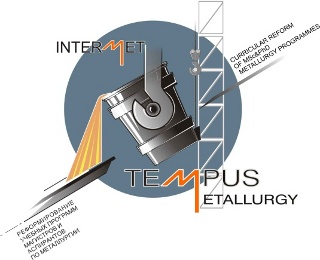 www.intermet.dp.ua |
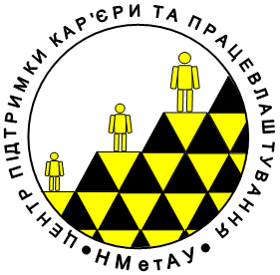 www.tempus-care.dp.ua |
| The objective of the project is the reform of study programmes for Metallurgy M.Sc. and PhD students through introducing of new subjects, delivering of the modern teaching technologies and improving of teachers` skills and qualification. This project is performed in order bring the study of Ukrainian students in line with European principles and educational standards stated in the Bologna Declaration. | The objective of the project is the creation of the facilities for career and employability support which will ensure the cooperation with potential employers, effective preparation of students for employment, establishing and supporting of the contacts with alumni. |




